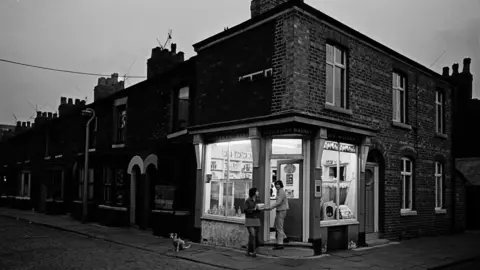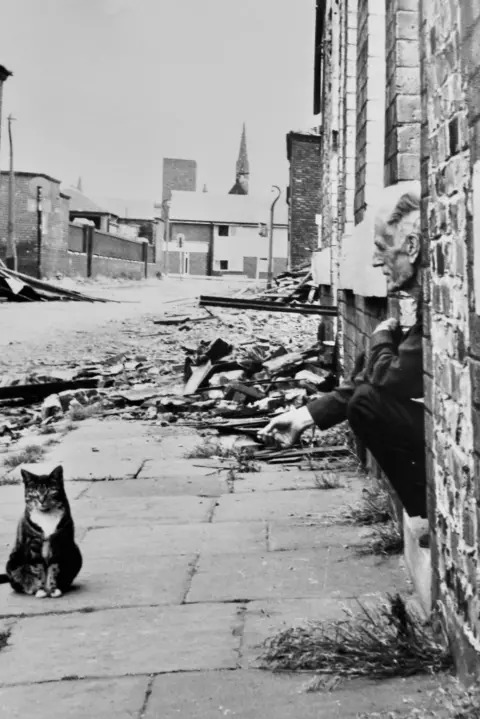Changing face of city charted in evocative images
 Nick Hedges
Nick HedgesAn exhibition of evocative photographs will chart the transformation of a city from the 1950s to the 1970s.
The Invisible Cities display will look at Salford when many of its terraced houses were being replaced by contemporary architecture.
Curator Dr Tanja Poppelreuter said the images "evoke a range of emotions and memories".
Salford Museum and Art Gallery will host the works from 18 May.
 Carole Burtonwood
Carole BurtonwoodDr Poppelreuter said the exhibition would touch on "slum clearance, modernisation and living in densely populated neighbourhoods and being rehoused".
She said it would also focus on "how its ‘slum clearance’ was captured by film and TV makers."
Nick Hedges, one of the photographers whose work features in the exhibition said: “It is such a democratic representative portrait of Salford.
"The mix of residents and professional contributions is truly vibrant.
"A great example of how history can be created to represent and embrace the reality of ordinary people’s lives.”
Funded by the Paul Mellon Centre for Studies in British Art, the exhibition will include images from the public, photographers, TV and film, alongside architectural drawings and illustrations.
'Invisible Cities: Salford before, during and after redevelopment, 1952 to 1974’ is the final event of the university project and will be running until 1 September.
Listen to the best of BBC Radio Manchester on Sounds and follow BBC Manchester on Facebook, X, and Instagram.You can also send story ideas to [email protected]
